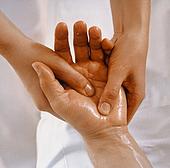A controversial study suggests that smacking children may put them at a greater risk of developing cancer later on in life. It also adds that smacking might also put those same children at higher risk of asthma and heart disease.
A comparative study was done between healthy adults and unhealthy adults. It was noted that most of those adults with diseases recognized they had been abused verbally or physically during their childhood.
It is believed that the stress caused by those types of treatment during childhood eventually results in some sort of physiological predisposition to diseases. There are other studies that also support the idea that severe trauma in childhood may lead to elevated risks of chronic diseases. The severe traumas referred to are sexual and physical abuse. That said experts are saying there are other factors involved that could not be ruled out yet. Factors like social isolation and poverty.
In this research a number of adults were asked about their childhood. There were 250 healthy adults, 150 adults with heart disease, 150 adults with cancer and 150 adults with asthma. The answers given by those groups of adults were then analyzed and compared.
Among other questions they were asked how often they have been verbally abused or beaten during their childhood. In comparison to the healthy group, those who had cancer were 70% more likely to have been beaten. Those with asthma were 60% more likely to have undergone verbal abuse and those with heart disease where 30% likely to have undergone similar treatments.
The Professor who led this research, Prof Micheal Hyland mentioned that early life forms of abuse and trauma are known to create long term biological changes that predisposes a person to diseases later in life. He went on saying that the study suggests that the corporal punishment that a child may go through may induce long term similar effects comparable to trauma or abuse.
Britain has laws that allows the prosecution of a parent that would smack a child so hard that it leaves a mark. It may lead to a 5 years prison sentence.
Prof David Spiegelhalter is a bit more cautious about the interpretation of theses results. He is a professor of the Public Understanding of Risk at the Cambridge University. He says the way the healthy group was selected, there might be a chance that childhood beating and abuse might not be the only difference between that healthy group and the unhealthy one.
A Clinical Lecturer in Child and Adolescent Psychiatry at the Institute of Psychiatry, Dr Andrea Danese recognized that this study adds to the growing body of research that shows a link between childhood maltreatment and diseases that appear later in life. She believes this can help better understand the origin of diseases and how we can prevent them.
It is important to take note that this study was done based on retrospective report. In other words, the subjects in the research were just remembering their past experience. It would be better to have a long term research that would observe children that are abused and check their health status later in life. The truth is ill people may be more prone to remember bad experiences and for that matter this particular research may be biased. There is still a long way to go when it comes to the understanding the mechanism through which child abuse can affect health in the long term.




